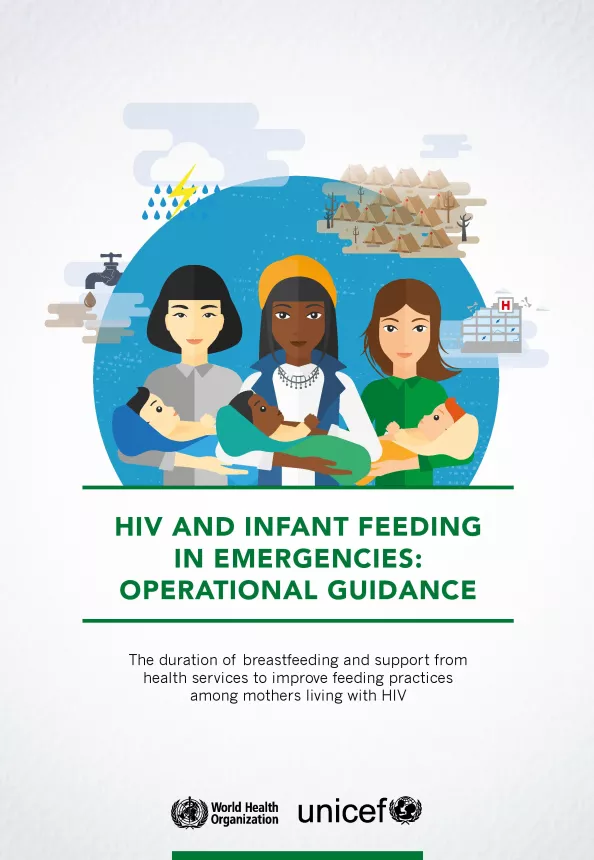HIV and Infant Feeding in Emergencies: Operational Guidance
Publication details
This operational guidance, developed by WHO, UNICEF and ENN, outlines the duration of breastfeeding and support from health services to improve infant feeding practices among mothers living with HIV. It is intended to be used to complement emergency and sectoral guidelines on health, nutrition and HIV, including specifically infant feeding, prevention of mother-to-child transmission of HIV and paediatric antiretroviral treatment.

Download
Document
Cite this publication
Recommended Citation
Reference this page
Close
WHO, UNICEF and ENN. 2018. HIV and Infant Feeding in Emergencies: Operational Guidance.
Citation Tools
Download to a citation manager
Close
The below files can be imported into your preferred reference management tool, most tools will allow you to manually import the RIS file. Endnote may required a specific filter file to be used.
